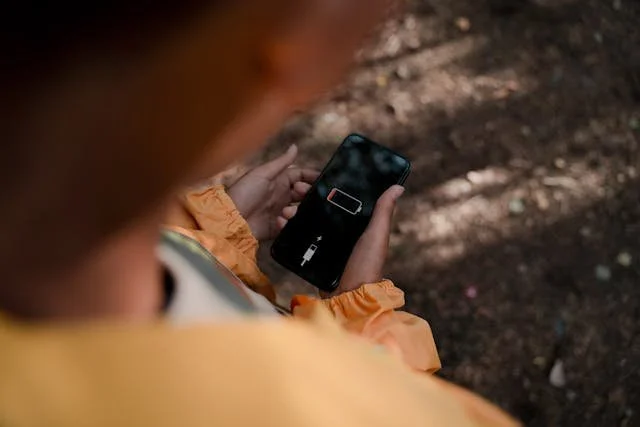9 ADHD Habits That Drain Your Energy
People with ADHD often feel like they are running on empty. You may start the day determined to stay on task but end up mentally exhausted by noon. Even simple things like making decisions, answering emails, or switching between tasks can feel like too much.
ADHD is not just about distraction or forgetfulness. It is also about energy management. Your brain uses more effort to filter noise, maintain focus, and regulate emotions, which leaves you depleted faster than most people realize.
In ADHD therapy, clients often discover that certain habits quietly steal their mental fuel. By understanding and changing these patterns, you can preserve energy, reduce frustration, and feel more in control of your day.
1. Overcommitting to Everything
Saying yes to too many things often comes from a mix of enthusiasm and guilt. You genuinely want to help or join in, but your calendar fills up faster than your energy can recover.
This constant overextension leads to burnout. In ADHD therapy, you learn how to pause before saying yes, check your energy levels, and build in buffer time for recovery. Rest becomes part of productivity, not the opposite of it.
2. Starting Without Clarity
ADHD brains love novelty and quick action, but starting without a plan can waste enormous energy. You may jump into a project with excitement, only to feel overwhelmed halfway through because the next steps are unclear.
Before beginning anything, take a few minutes to outline your goal and the first small step. Structure reduces decision fatigue and gives your brain clear direction, which conserves energy for follow-through.
3. Ignoring Transitions
Transitions—moving from one task or place to another—can be surprisingly draining for people with ADHD. Shifting mental gears requires effort, especially when you are absorbed in one activity and forced to switch to another.
Therapists often suggest adding short transition rituals, like taking a deep breath, stretching, or setting a brief timer before moving to the next task. These tiny pauses give your brain a moment to reset, preventing mental whiplash.
4. Underestimating the Cost of Decision Fatigue
Every choice you make uses cognitive energy. For an ADHD brain that is already managing a flood of thoughts, even small decisions can add up.
Simplify whenever possible. Create routines for meals, clothes, and daily priorities. The fewer micro-decisions you face, the more energy you have left for things that truly matter.
5. Multitasking Too Often
It can feel efficient to juggle several things at once, but multitasking drains focus faster than almost anything else. Switching tasks forces your brain to repeatedly refocus, which uses more mental fuel than staying with one task until it is done.
Try “single-tasking” instead. Keep only one window or project open at a time. Even short stretches of uninterrupted attention are more productive and less tiring than multitasking all day.
6. Forgetting to Regulate Stimulation
People with ADHD often oscillate between overstimulation and boredom. Too much noise, clutter, or digital input overwhelms the senses, while too little stimulation causes restlessness and distraction.
In ADHD therapy, you learn to adjust your environment based on your current energy level. Some people focus best with quiet music or background noise, while others need silence. The goal is not to eliminate stimulation but to find your ideal level of balance.
7. Skipping Breaks Because of Guilt
When you are behind or distracted, breaks can feel undeserved. You push through, telling yourself you will rest once you finish everything—but that moment never comes.
Rest is not a reward. It is a biological requirement. Short, intentional breaks prevent your brain from hitting exhaustion and improve focus afterward. Setting a timer for movement or stretching every hour can make a noticeable difference in daily energy.
8. Avoiding Tasks That Trigger Shame
Procrastination is often less about laziness and more about avoidance of discomfort. When tasks feel overwhelming or trigger self-doubt, you may unconsciously delay them, leading to guilt and more energy loss.
Therapy helps you break tasks into smaller parts and approach them with compassion rather than criticism. When you replace self-blame with curiosity, motivation starts to return naturally.
9. Neglecting Emotional Regulation
Emotional intensity is common in ADHD. A difficult conversation, rejection, or even a minor mistake can feel huge and linger for hours. This emotional reactivity is mentally exhausting.
ADHD therapy teaches grounding techniques, mindfulness, and body-based strategies to calm your nervous system. Learning how to regulate emotions helps conserve energy that would otherwise be spent on rumination or self-criticism.
Rebuilding Energy Through Awareness
Energy management is not about doing less. It is about doing differently. When you identify the habits that quietly drain you, you can make small, strategic changes that restore focus and stamina.
In ADHD therapy, you learn how to balance structure with flexibility, reduce unnecessary effort, and create systems that match how your brain naturally works. With the right support, you can stop running on empty and start using your energy where it truly counts.
Final Thoughts
Living with ADHD does not mean you have endless energy or focus. It means your brain works hard in ways others do not see. By recognizing and reshaping these nine habits, you can protect your mental fuel, improve focus, and experience more peace in your daily life.
ADHD therapy offers the tools to make those changes sustainable. Healing starts not with doing more, but with giving your brain what it actually needs to function well—structure, rest, and self-compassion.

